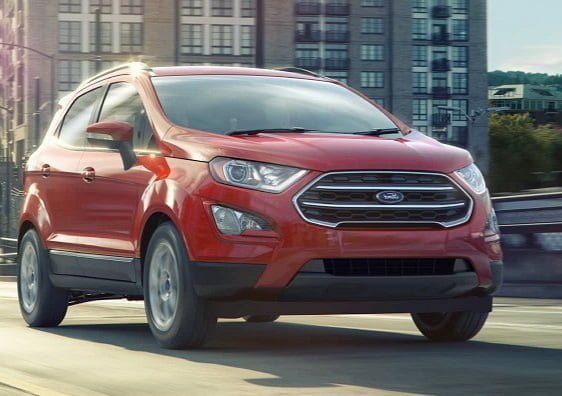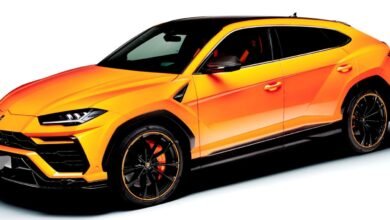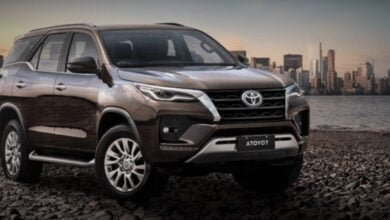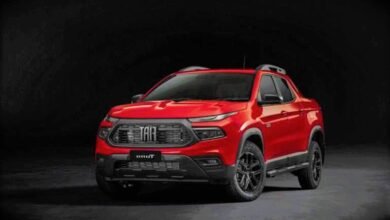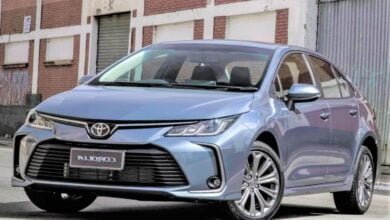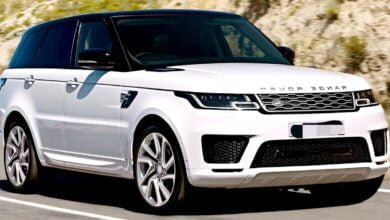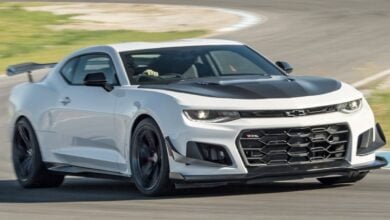Ford EcoSport 2021
Ford EcoSport 2021
Ford EcoSport automakers are quickly filling their kits with secondary crossovers , many of which are worth your money. Some, like the 2021 Ford EcoSport, are not. While the EcoSport offers the long sitting position that many buyers are looking for , it fails to provide much more than that. Its standard engine is a low-powered three-cylinder with mediocre fuel efficiency; Four cylinders are optional. Interior space is limited and inexpensive materials can be found throughout, even in the higher trim levels. Vehicles such as the Mazda CX-30, Hyundai Kona or Kia Soul, with their more refined driving experiences, sportier looks and better cabins, are excellent choices for buyers in this segment. And for those who need more space, look at the Nissan Kicks.
-

Ford Eco Sport
Very few new features in the 2021 EcoSport, but it does get an updated look package, a standard electric driver’s seat on the top of the SES 4WD (oddly, there wasn’t one before), and synthetic leather seat covers on the Titanium model.
The SE would be better off using the EcoSport, which significantly upgrades the S model. The SE gives you features like heated front seats and a power-adjustable driver’s seat, as well as automatic climate control and Ford’s Sync 3 infotainment system with a touchscreen display. 8.0 inches, electric sunroof. Upgrading to all-wheel drive costs $1,500 on any of the trim levels—except for the SES 4WD, which comes standard with it. SES also replaces the standard three-cylinder engine with a more powerful four-cylinder. However, given how similar the two engines perform, we’d suggest sticking with front-wheel drive to save on the added weight – unless you really need to send power to all four wheels.
Engine, transmission and performance Ford EcoSport
-

Ford Eco Sport Ford Eco Sport
Whether it has a standard 123-hp three-cylinder engine or an optional 166-hp four-cylinder engine, the EcoSport is the opposite of the fast engine. Both engines share a six-speed automatic transmission, and surprisingly they can pull more than most competitors. After driving these engines, we confirmed that straight-line acceleration is not their strong point. However ,
Both engines felt lively at stop signs and at city speeds. Ford can tow up to 2,000 pounds when equipped with the four-cylinder engine. Even the three-cylinder version can handle up to 1,400 lbs. The EcoSport drives better at slower speeds. The Ford almost felt too skidding through busy streets, but its fuzzy steering and noisy ride dampened the experience. While the ride can’t isolate the cabin from rough surfaces, the gently slick suspension on our titanium test car effectively relieves occupants of the harshness. Spongy bumps and extremely heavy behavior led to unbridled body movements. These effects are amplified at higher speeds. The front-wheel drive titanium brake pedal never felt firm, but it did provide a consistent response.
Ford EcoSport fuel economy
Those who think “Eco” in EcoSport means economic will be disappointed. The Environmental Protection Agency estimates that the standard three-cylinder engine will gain up to 27 mpg in the city and 29 on the highway. The four-cylinder version has ratings of 23 mpg city and 29 mpg highway. Surprisingly, the four-cylinder version performed better in our real-world highway test than the three-cylinder version. We noticed 30 mpg with the four cylinder but only 28 with the three cylinder. However, neither was quite as efficient as the Hyundai Kona or the Nissan Rogue Sport we tested.
Ford Eco Sport interior, comfort and cargo
The EcoSport interior is functional rather than modern, which we can appreciate over the cheaper models. And the cabin quality is very poor, which is frustrating in the upper trims that cost close to 30 thousand dollars. Meanwhile, there’s plenty of room for passengers in the front but not much in the back. Compared to the elegant cabins of the Kona and Kia Soul, the Ford’s compact interior is disappointing. The leather-wrapped steering wheel felt rubbery, and most of the plastic surfaces felt stiff and hollow. The SES style dresses things up with exclusive leather and fabric seats as well as brass-tone trim pieces.
Despite its compact size, the EcoSport has competitive stowage and storage space. Most of the test results were average. The Ford has proven to be a useful, if compact, travel companion with a few handy tricks. It had fewer carry bags than the Rogue Sport and Honda HR-V but had a higher capacity than other similar competitors. The EcoSport has a variety of internal storage, but not too much space. A lockable vent in the glove box connects to the vehicle’s air conditioner to create a climate-controlled cabin.
- Information, entertainment and communication
-

Ford Eco Sport Ford Eco Sport
The EcoSport offers two levels of infotainment, with the top version based on Ford’s easy-to-use Sync 3 system, which uses an 8.0-inch touchscreen and comes with features like Apple CarPlay and Android Auto. Base models have a basic Bluetooth compatible display but no other smartphone integration.
Ford Eco Sport Safety and Driver Assistance Features
The 2021 EcoSport received a four-star crash test rating from the National Highway Traffic Safety Administration (NHTSA), but has not been rated by the Insurance Institute for Highway Safety (IIHS). While the Ford lacks advanced driver assistance such as automated emergency braking and adaptive cruise control, the available features are on par with most competitors. Key features include:
Blind spot monitoring available
Rear cross traffic alert is available
Rear parking sensors available
Warranty and maintenance coverage
Accurately averaged EcoSport warranty coverage; Those who want the best protection available should consider either Soul or Kona.
The limited warranty covers 3 years or 36000 miles
Powertrain warranty covers 5 years or 60,000 miles
No free scheduled maintenance
- Specifications
Vehicle type: Front-wheel drive, 4-wheel drive, 5-passenger, 4-door hatchback
Engine type: DOHC 16-valve inline-4, aluminum block and head, direct fuel injection
Displacement: 122 m³, 1999 cc
Power: 166 bhp @ 6500 rpm
Torque: 149 lb-ft at 4,500 rpm
Transmission: 6-speed automatic with manual shift mode
Chassis:
Suspension (F / R): strut / multi-link
Brakes (F/R): 11.8-inch vented disc / 10.7-inch disc
Tyres: Bridgestone Ecopia EP422 Plus, 205/50R-17 93H M + S
Dimensions:
Wheelbase: 99.2 inches
Length: 161.3 inches
Width: 69.5 inches Height: 65.1 inches
Passenger volume: 93 cubic feet
Payload volume: 21 cubic feet
Empty vehicle weight: 3386 lbs
C/D Test Results:
Zero to 60 mph: 9.8 seconds
Zero to 100 mph: 39.1 seconds
Rolling start, 5-60 mph: 10.4 seconds
Top speed, 30-50 mph: 5.0 seconds
Top speed, 50-70 mph: 7.0 seconds
Standing ¼ mile: 17.5 seconds @ 80 mph
Top speed (limited governor): 117 mph
Braking, 70 to 0 mph: 182 ft
Road Skateboard, 300ft Dia*: 0.79g
*Inhibit stability control
C/D fuel economy:
Observed: 24 mpg
75 mpg highway driving: 30 mpg
Highway range: 400 miles
Fuel economy according to the Environmental Protection Agency:
Pool/city/highway: 25/23/29 mpg
Price as tested: $27,875 (Base price: $22.585)
هذه المقالة متاحة أيضًا بـ: العربية (Arabic) 日本語 (Japanese)
